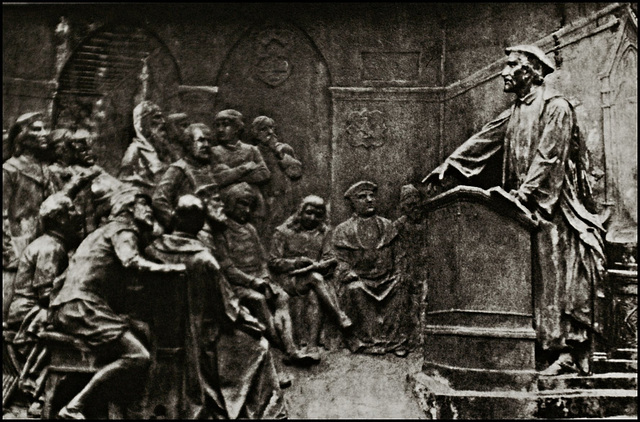Einstein
Bindu
Top: Islamic decoration - Badra Azerbaijan Bottom…
The observed clustering of about a million galaxie…
Some numerological flights of fancy inolving the n…
Newyork subway
Writing
Cloud computing
Snapshot
Suburbia
A Company is a system.....
Europa Rides
Illusion Redux
50% of my genetic makeup.....!
Childhood
Humpty Dumpty
A computer simulation of a network of cosmic strin…
" I "
Dual Aspect Theory
Internal/External
Map from Imago Mundi
DASA
Danate Alighieri
Gandhiji & his secretary Mahadev Desai
June 13th 2008
Ubiquitous
Studebaker 1960
Chevy Impala 1958
Lincoln 1962
Ford Victoria 1951
.............? 1930
Brush
Chevrolet
Ford
Chrysler
Downtown
Grass
Grass
Ouch! ... It's cold
See also...
Keywords
Authorizations, license
-
Visible by: Everyone -
All rights reserved
-
112 visits
Giordani Bruno


BrunoGiordano (1548-1600), an Italian wandering scholar, once a Dominican, starts from a Neo-Platonist position. The phenomena we see in the world are the effects of a world-soul which animates nature and makes it into a single organism. In Bruno’s thought God sometimes seems distant and unknowable; at other times God seems to be totally identified with the world of nature. In Bruno’s august but not wholly intelligible expression, God is the Nature which causes Nature which manifests itself in the Nature which is caused by Nature.
The world of nature, for Bruno, is infinite, with no edge, surface, or limit. In this boundless space there are many scholar systems; our sun is just one star among others, and no one star can be called the centre of the universe, since all position is relative. Our earth enjoys no unique privilege; for all we know intelligent life is present elsewhere in the universe. Solar systems rise, glow, and perish, pulsating moments in the life of the single organism whole soul is the world-soul. The universe is built up of atoms, physical and spiritual; each human being is a conscious, immortal atom, mirroring in itself the entire universe.
Bruno’s opinions, unsurprisingly, did not find favour with the Church. He was passed from one Inquisition to an other, and, having refused to recant, was burnt in Rome in 1600. His theories anticipate, in an exciting way, scientific discoveries of later ages and speculations which remain popular with scientists at the present day. But that is what they are, speculations; so far as we know he devoted no time to observation or experiment ~ page 199
The world of nature, for Bruno, is infinite, with no edge, surface, or limit. In this boundless space there are many scholar systems; our sun is just one star among others, and no one star can be called the centre of the universe, since all position is relative. Our earth enjoys no unique privilege; for all we know intelligent life is present elsewhere in the universe. Solar systems rise, glow, and perish, pulsating moments in the life of the single organism whole soul is the world-soul. The universe is built up of atoms, physical and spiritual; each human being is a conscious, immortal atom, mirroring in itself the entire universe.
Bruno’s opinions, unsurprisingly, did not find favour with the Church. He was passed from one Inquisition to an other, and, having refused to recant, was burnt in Rome in 1600. His theories anticipate, in an exciting way, scientific discoveries of later ages and speculations which remain popular with scientists at the present day. But that is what they are, speculations; so far as we know he devoted no time to observation or experiment ~ page 199
- Keyboard shortcuts:
Jump to top
RSS feed- Latest comments - Subscribe to the comment feeds of this photo
- ipernity © 2007-2024
- Help & Contact
|
Club news
|
About ipernity
|
History |
ipernity Club & Prices |
Guide of good conduct
Donate | Group guidelines | Privacy policy | Terms of use | Statutes | In memoria -
Facebook
Twitter

One of Bruno’s contemporaries, although they did not know each other, was the conservative monarchist and devout Roman Catholic Michael de Montaigne, who penned these beautiful sentiments circa 1580: “I do not suffer from that common failing of judging another man by me. I can easily believe that others have qualities quite distinct from my own . . . I can conceive and believe that there are thousands of different ways of living.” Montaigne goes on, declaring himself, “contrary to most men,” ready to contemplate another human being “simply as he is, free from comparisons…. My one desire is that each of us should be judged apart from that conclusions about me [or anyone else] should not be drawn from routine ‘exempla’. ~ Page 221/222 (Excerpt "God and His Demons" ~ Michael Parenti
Sign-in to write a comment.